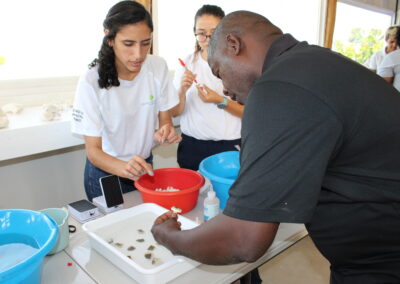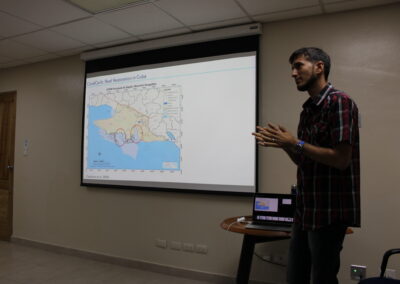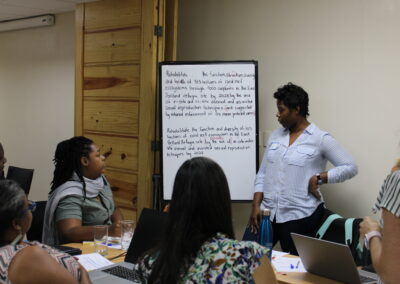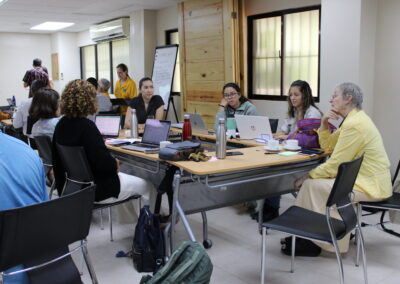CoralCarib Restoration Action Plan Workshop & Learning Exchange – Dominican Republic, 2023
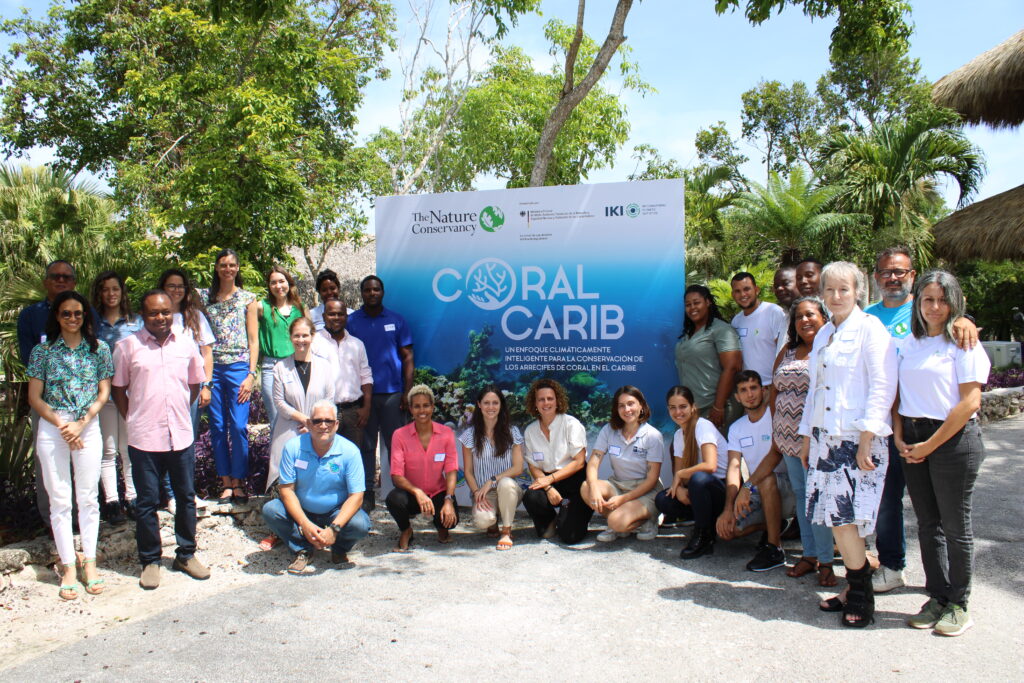
Training group at the CoralCarib Restoration Action Plan Workshop & Learning Exchange. Photo © Rose Aquino/Haiti Ocean Project
In July 2023, 20 marine managers and practitioners from Cuba, the Dominican Republic, Haiti, and Jamaica participated in the CoralCarib Restoration Action Plan Workshop & Learning Exchange. This five-day workshop and learning exchange focused on coral restoration planning and design using the Manager’s Guide to Coral Reef Restoration Planning and Design to start the process of drafting restoration action plans for implementation sites in these four countries. This is in support of TNC Caribbean’s CoralCarib project, a 8.5 million Euro project to protect 1,871 hectares of coral reef ecosystems in these countries. Participants also had two days of site visits and hands-on training on land-based coral nurseries, coral micro-fragmentation techniques, and sexual reproduction techniques with project partners Fundación Grupo Puntacana (FGPC) and Fundación Dominicana de Estudios Marinos (FUNDEMAR).
This training was organized by The Nature Conservancy Caribbean with support from the Reef Resilience Network. Staff, partners, and hosts included: Dr. Elizabeth Shaver (TNC Caribbean), Cherie Wagner (TNC/RRN), Dr. Denise Perez (TNC Caribbean), Maxene Atis (TNC Caribbean), Yolanny Rojas (TNC Caribbean), FGPC, and FUNDEMAR.
This training was funded through the project “CoralCarib: Pioneering a new strategic approach for conserving and restoring Caribbean coral reef ecosystems that targets Climate Resilient Refugia," funded by the Federal Ministry for the Environment, Nature Conservation, and Nuclear Safety (BMUV) of the German Government.

